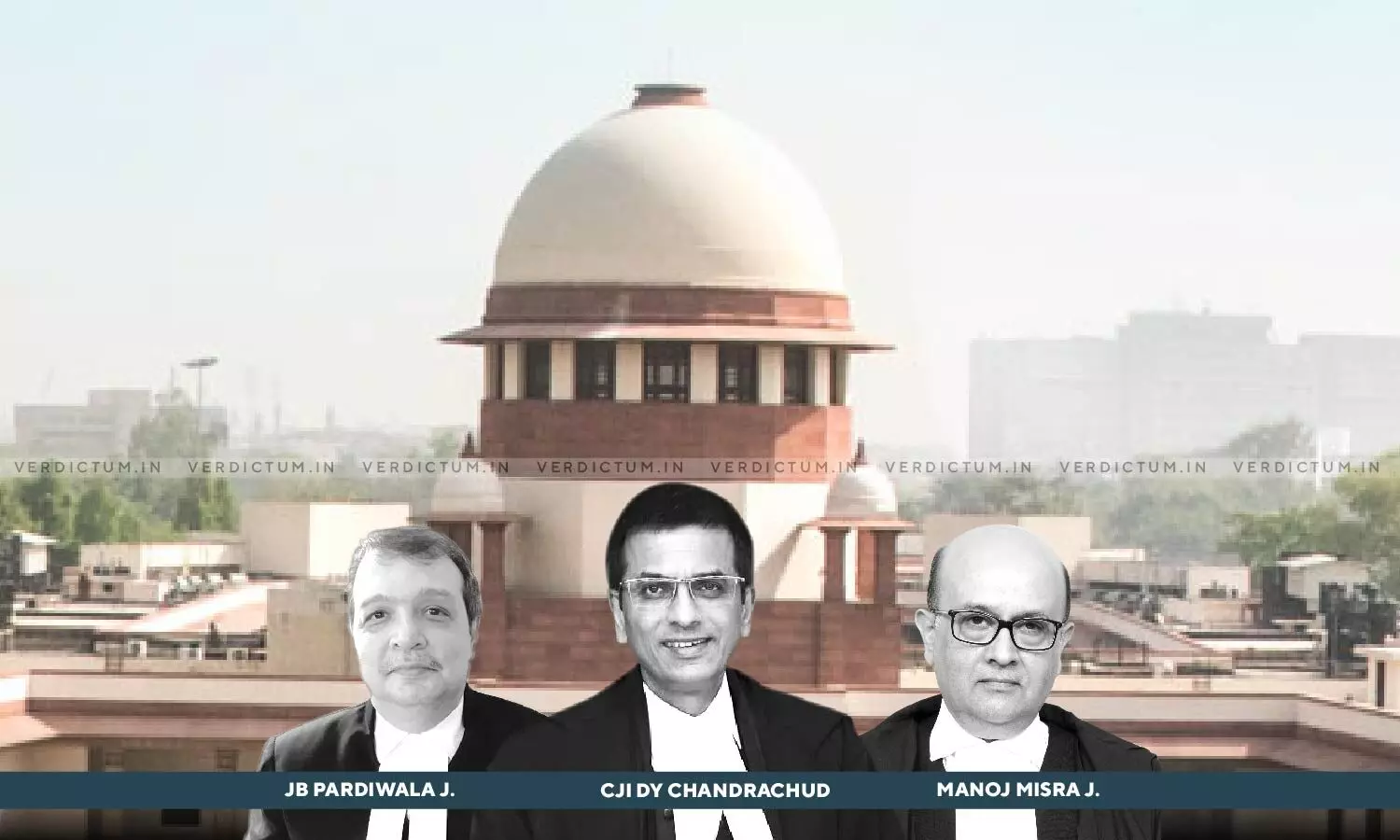
MSMED Act- Writ Petition Challenging Facilitation Council’s Award Not Maintainable: Supreme Court
 |
|The Supreme Court observed that a writ petition challenging an award passed by Facilitation Council under the Micro, Small and Medium Enterprises Development Act, 2006 (MSMED Act) is not maintainable.
The court upheld Telangana High Court’s judgment that refused to entertain a writ petition observing that the petitioner-a Micro and Small Enterprise (MSME) had an adequate remedy under Section 34 of the Arbitration and Conciliation Act 1996.
While affirming, a bench of Chief Justice of India D.Y. Chandrachud, Justice J.B. Pardiwala and Justice Manoj Misra observed, “Section 19 has been introduced as a measure of security for enterprises for whom a special provision is made in the MSMED Act by Parliament. In view of the provisions of Section 18(4), the appellant had a remedy under Section 34 of the Act of 1996 to challenge the award which it failed to pursue…The appellant failed to avail of the remedy under Section 34. If it were to do so, it would have been required to deposit seventy-five per cent of the decretal amount. This obligation under the statute was sought to be obviated by taking recourse to the jurisdiction under Articles 226/227 of the Constitution. This was clearly impermissible”.
Senior Advocate Parag P Tripathi appeared for the appellant-India Glycols Limited and Senior Advocate Dr S Muralidhar appeared for S R Technologies (Unit II) (respondent no. 2)
In the matter, S R Technologies (Unit II), governed by the provisions of the MSMED Act, filed a claim before the Micro and Small Enterprises Facilitation Council. The Facilitation Council then decreed the claim in the principal sum of Rs 40,29,862, on which interest with monthly rests at three times the bank rate prevailing as on the date of the award was granted under Section 16 from the appointed day till final payment.
A Single Judge bench then on challenge to the award of the Facilitation Council under Articles 226/227 of the Constitution, had set aside the award on the ground that the claim was barred by limitation.
The Division Bench of the High Court then on appeal, while setting aside the order of the Single Judge observed, “Insofar maintainability of the writ petition is concerned, when respondents No.2 and 3had an adequate, efficacious and alternate remedy under Section 34 of the 1996 Act, learned Single Judge ought not to have entertained the writ petition. While maintainability of a writ petition is one aspect, entertainability is the relevant question. Considering the objective of the MSME Act and the provisions of Sections 15 to 23 thereof, learned Single Judge erred in entertaining the writ petition”.
However, the Division Bench while relying on Gujarat State Civil Supplies Corporation Limited vs Mahakali Foods Private Limited (Unit 2) and Another concluded that the claim was time barred.
It is to be noted that as per Section 19 of the MSMED Act, an application for setting aside an award of the Facilitation Council cannot be entertained by any court unless the appellant has deposited 75% of the amount in terms of the award. Furthermore, under Section 18(4) of the Act, where the Facilitation Council proceeds to arbitrate upon a dispute, the provisions of the Act of 1996 are to apply to the dispute as if it is in pursuance of an arbitration agreement under sub-section (1) of Section 7 of that Act.
The counsel for the appellant had argued that the Facilitation Council’s award which was also upheld by the Division Bench “suffers from a perversity” as the Limitation Act 1963 had no application and hence a petition under Article 226 of the Constitution ought to have been entertained.
However, refusing to accept the contention, the bench observed, “We cannot accept this submission for the simple reason that Section 18 of the MSMED Act 2006 provides for recourse to a statutory remedy for challenging an award under the Act of 1996. However, recourse to the remedy is subject to the discipline of complying with the provisions of Section 19. The entertaining of a petition under Articles 226/227 of the Constitution, in order to obviate compliance with the requirement of pre-deposit under Section 19, would defeat the object and purpose of the special enactment which has been legislated upon by Parliament”.
Accordingly, the bench disposed of the Special Leave Petition.
Cause Title: M/s India Glycols Limited and Another v. Micro and Small Enterprises Facilitation Council, Medchal - Malkajgiri and Others
Click here to read/download the Order